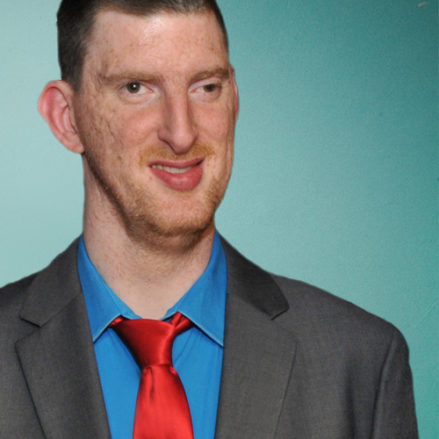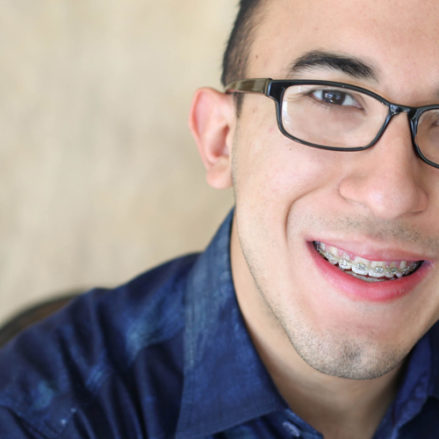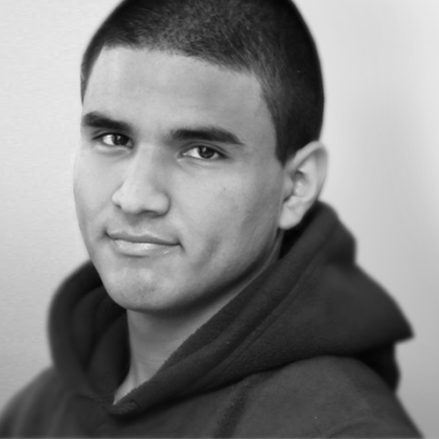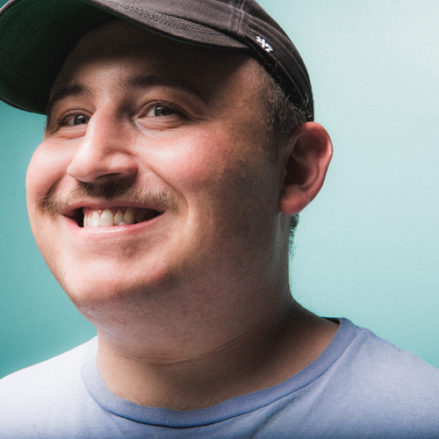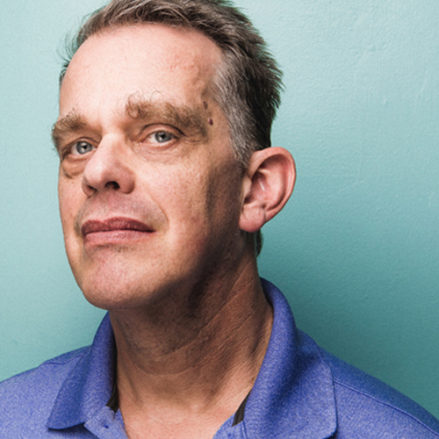In the age of the #MeToo movement, it is becoming common to speak out against sexual violence within many industries and communities. Center for Independent Futures supports all who speak up against sexual violence, and we believe it is crucial not to leave out one population that is disproportionately affected by sexual violence – but is often the least heard.
People with disabilities are part of a historically marginalized group who often rely on others for assistance and care. Unfortunately, sometimes the people designated as caretakers or friends take advantage of a lack of sex education for individuals with disabilities.
The following workshops are from Susy Woods. Susy conducts workshops year round about educational rights and sex education for individuals with disabilities. Her previous audiences include Public Health departments and DRS staff, as well as families and agency staff.
Center for Independent Futures Offers Workshops
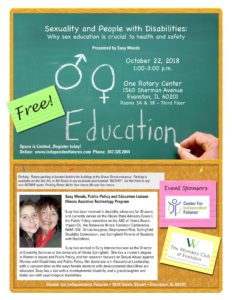
Thanks to generous funding from the Woman’s Club of Evanston and the A. Montgomery Ward Foundation, we are offering two workshops on Monday, October 22 at One Rotary Center. The first workshop from 1:00-3:00 pm is for parents of students with disabilities in high school or transition programs. The second workshop is for teachers and agency staff from 4:30-6:30 pm and covers topics like the warning signs of sexual assault and what to teach.
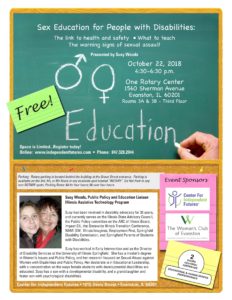
Susy Woods is presenting these workshops to educate families, teachers, and agency staff about sexual violence prevention and how to handle sexual violence accusations. To register for the parent workshop, visit the event page. For school & agency staff, register here. The Rotary Center has very limited seating, so act fast!
Classes for Individuals with Disabilities
Finally, we are offering classes for individuals with disabilities to teach them about self-defense and sexual violence. Many sex education classes exclude people with disabilities, even though this group has the same natural feelings that any other group of adults may feel.
We are offering six classes for women with disabilities, including self-defense classes at Tier 1 Training Center. We will also host six classes for men with disabilities. Led by a male staff member, the class will cover topics including definitions of sexual violence and consent.
We will include these classes on our upcoming activities calendar and added to the online calendar. You can find registration details there as well.
Inclusive Education on Sexual Violence Prevention
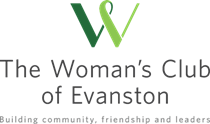 We are proud to offer these workshops and classes to the Evanston and North Shore communities. To the Woman’s Club of Evanston, we want to offer our thanks for making these events possible.
We are proud to offer these workshops and classes to the Evanston and North Shore communities. To the Woman’s Club of Evanston, we want to offer our thanks for making these events possible.

 In 1990, Congress passed the Americans with Disabilities Act (ADA) in a step to shift the country toward accessibility for all. The 28th anniversary of the bill’s passage is on July 26th. Since 1990, the ADA has been defined and redefined again to include all levels of disabilities, including mental health challenges.
In 1990, Congress passed the Americans with Disabilities Act (ADA) in a step to shift the country toward accessibility for all. The 28th anniversary of the bill’s passage is on July 26th. Since 1990, the ADA has been defined and redefined again to include all levels of disabilities, including mental health challenges.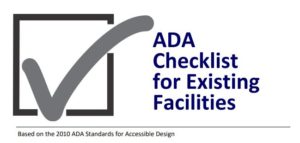 All government buildings and offices, as well as businesses and nonprofits, must be accessible to people with disabilities on an equal basis as others. The
All government buildings and offices, as well as businesses and nonprofits, must be accessible to people with disabilities on an equal basis as others. The